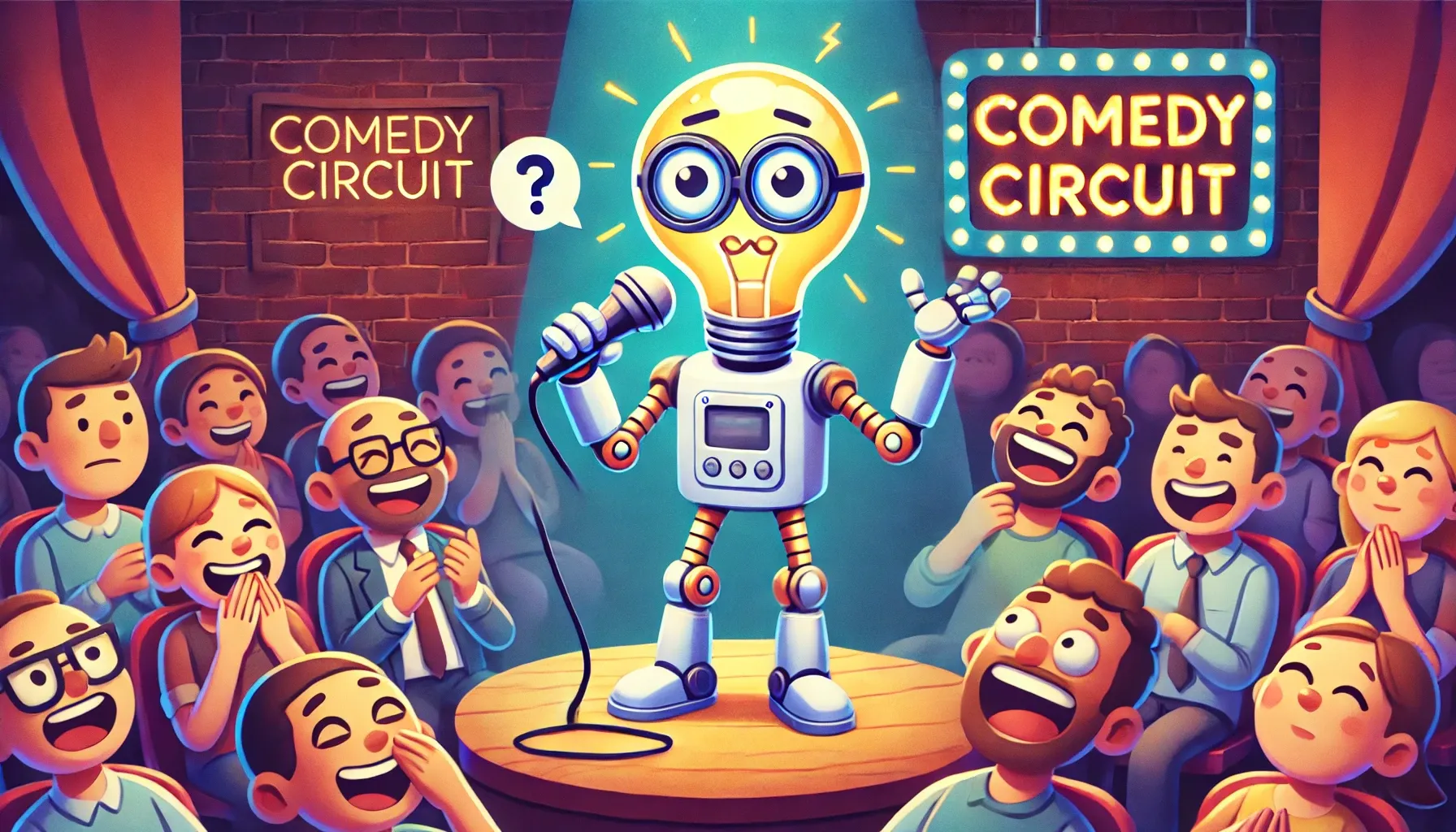Picture this: a robot walks into a bar. It orders a screwdriver. The bartender hands it a Phillips head and says, "Here you go!" The robot stares blankly, its humor circuits frying as it tries to compute the punchline. Welcome to the wonderfully weird world of AI-generated comedy, where the jokes are hit-or-miss, and the misses are often funnier than the hits!
The Comedy Coding Conundrum
Teaching AI to be funny is like trying to explain memes to your grandparents – it's a noble effort, but something always gets lost in translation. Programmers worldwide are scratching their heads, wondering how to encode the essence of a perfectly timed "That's what she said" joke into lines of code. The Pun-damental Problem: AI excels at pattern recognition, but humor often relies on the unexpected. It's like asking a machine to be spontaneous – a paradox wrapped in a riddle, served with a side of irony.
AI's Greatest Comedy Hits (and Misses)
Let's take a look at some of AI's attempts at humor. Brace yourselves; it's going to be a bumpy ride through the uncanny valley of comedy. AI-generated gold:"Why don't scientists trust atoms? Because they make up everything!" Not bad, AI. You've mastered the dad joke algorithm. Your human overlords are proud. AI comedy catastrophe:"Why did the scarecrow become a successful motivational speaker? Because he was outstanding in his field!" Oh, AI. You were so close. You understood the pun, but missed the crucial setup about the scarecrow being in a field. A for effort, C- for execution.
The Turing Test of Comedy
Creating a truly funny AI is like teaching a fish to ride a bicycle – theoretically possible, but the results are more likely to be amusing than practical. Some argue that passing the Turing test isn't enough; we need a "Laughing Test" to truly measure AI's understanding of humor. Imagine the scene:
Human: Tell me a joke. AI: Why did the computer go to the doctor? It had a virus! Human: *Polite chuckle* AI: Based on your facial expression and vocal response, I calculate a 37% probability that you found my joke amusing. Shall I adjust my humor parameters? Human: *Laughs for real this time*The Future of Artificial Hilarity
As AI continues to evolve, who knows what comedic heights (or depths) it might reach? Perhaps one day, we'll have AI stand-up comedians, their servo motors whirring as they adjust their microphones and say, "So, how about that machine learning, huh?" Until then, we can enjoy the delightful absurdity of machines trying to master the art of making humans laugh. It's a reminder that some aspects of humanity – like our ability to find humor in the unexpected – are still uniquely ours.
Conclusion: The Last Laugh
In the end, the quest for artificial humor teaches us as much about ourselves as it does about AI. It highlights the beautiful complexity of human communication and the subtle nuances that make us laugh. So the next time you hear an AI-generated joke that falls flat, remember: it's not just a failed attempt at humor. It's a small victory for humanity, a reminder that there's still a bit of magic in our meat-based neural networks that silicon can't quite replicate. And who knows? Maybe one day, an AI will read this blog post and finally understand why it's funny. Until then, keep laughing at the robots – it might be the only way to stay sane when they eventually take over!
